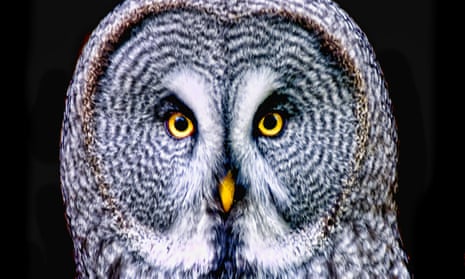Tiny is pregnant, but not as we know it: she is expecting an “owl-baby”, the result of a secret tryst with a female “owl-lover”. “This baby will never learn to speak, or love, or look after itself”, Tiny knows. Her husband, an intellectual property lawyer, thinks her panic is just pregnancy jitters, and that she’s carrying his child. Even when he finds a disembowelled possum on the path and his “well fed” wife sitting in the dark (“It didn’t feel dark to me. I see everything”), he doesn’t believe. Then the baby is born.
Chouette, Claire Oshetsky’s first novel, is part feminist fairytale in the vein of Angela Carter, part suburban body horror. Its epigraph is a quote from the David Lynch film Eraserhead: “Mother, they are still not sure it is a baby!” That film, which centres around an alien-like infant, was, according to Lynch’s daughter Jennifer, based on her own “birth defects”. Oshetsky describes the novel as being inspired by her experience of raising “non-conforming children”, and is herself autistic. Her depiction of a baby who misses its developmental milestones, doesn’t speak and lashes out when frightened will be familiar to some families with experience of disability or neurodiversity.
Disability is frequently used as a horror trope, and in the wrong hands it is a metaphor that can become tasteless and offensive. This is not the case here. Really, Chouette is a sublime parable of mother-love which ferociously eviscerates society’s failure to accept nonconformity. It features one of the most detestable son/mother-in-law duos that I have known in fiction; all Tiny’s husband wants to do is find a medical “fix” for Chouette, whom he insists on calling “Charlotte”. He leaves mother and child to sleep above the garage, while his family exclude the new baby from gatherings and never visit. In one memorable scene, Tiny’s husband weeps with grief against her breast while her owl-baby nurses from the other. “That’s the moment when I choose you to be the one I’ll love the most … ” Tiny says to her baby.
Chouette is full of moments of dark humour as the otherworldly elements of the narrative brush up against the mundanity of suburban life and the demands it places on wives and mothers. Like all works of “fantastic” literature, it leaves the reader uncertain: is this a book about the truly supernatural, or the manifestation of a maternal coping mechanism?
It would not surprise me if Chouette finds a place in the feminist literary canon. It has lingered in my mind in a way that only the most original works do. In its exploration of difference – of disability, of queerness – it feels truly modern, but in its themes of love and sacrifice, it is the oldest tale in the world.
